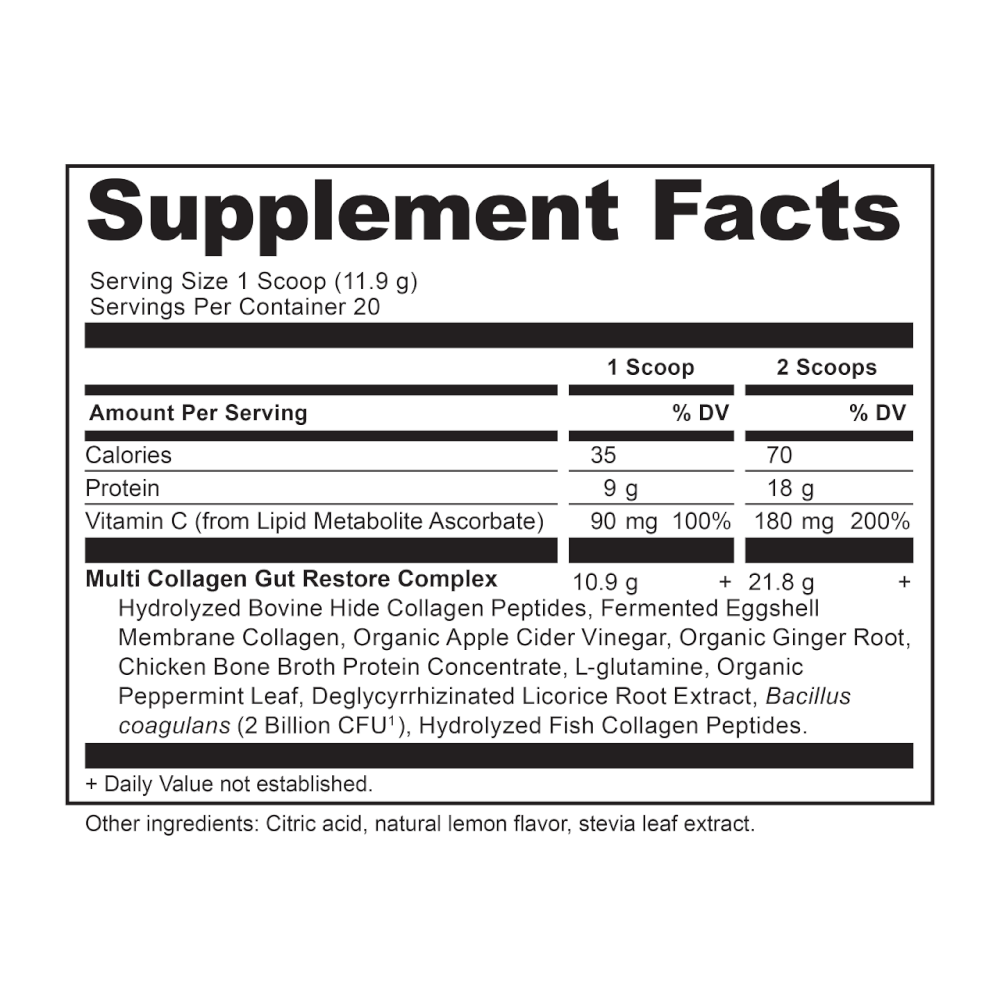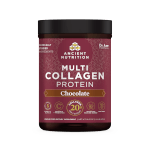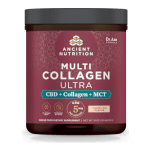Ancient Nutrition Multi Collagen Protein Gut Restore Lemon Ginger 20 Servings Powder
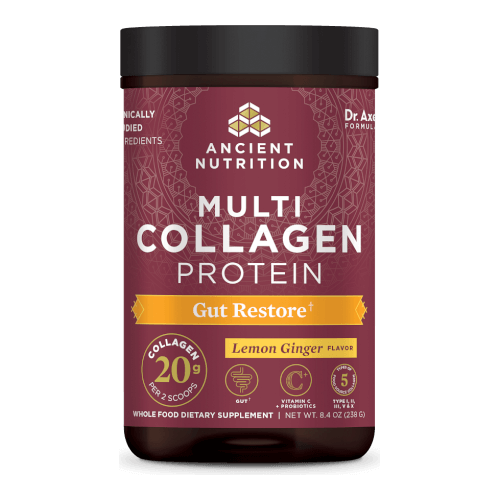
| Multi Collagen Protein Gut Restore Lemon Ginger 20 Servings Powder | |
| Retail Price | $34.95 |
| Discount 15% | $5.24 |
| Your Price | $29.71 |
| More Info | |
More Ancient Nutrition Products
Other collagen powders may feature probiotics, but this Gut Restore formula is unlike any other. The unique, expert-formulated combination of ingredients sets this product apart and supports your gut with 5 types of collagen, shelf-stable SBO probiotics, powerful prebiotics and two kinds of Glutamine. Longtime Dr. Axe customers may recognize some of the ingredients, this is a remake of the best selling Leaky Gut Formula powder with a few tweaks and improvements.
Contains
Magnesium Glycinate Glutamine. Chelated magnesium bonded to Glycine and gut-supporting Glutamine in a form that is easily absorbed by the body.
L-Alanyl-L-Glutamine. This form of glutamine supports a healthy gut lining and integrity.
Bacillus coagulans 1B CFU. This soil based organism (SBO) probiotic strain that supports healthy gut microflora, a healthy immune system and gastrointestinal health.
Most of us don’t get enough collagen in our diets, and collagen levels can start to drop as early as when a person’s in their 20s. But there’s a whole lot of life to live after our 20s.
Collagen is one of the reasons our bodies don’t fall apart. Collagen literally functions to hold you together—everything from your joints, bones, ligaments and tendons all the way down to the cellular level, while also supporting health in a variety of other ways, depending on the type or types of collagen.
But what is collagen? Collagen is a protein made up of building blocks called amino acids and is so important that it makes up approximately 30 percent of all the proteins in the body, and different bodily systems and organs need specific proteins serving a variety of functions.
Some of those functions of protein occur in the blood, where they are necessary for clotting and for the transport of molecules, while others are involved in proper digestion, including enzymes helping to break down food. Still others are in muscles where they serve to support healthy and proper movement.
Proteins that perform such “functions” can be called “functional proteins.” There are also other proteins which are termed “structural proteins.” They’re the ones which contribute to as well as sustain the soundness of the human structure.
Collagen is a member of both protein camps because it supports the function and the structure of the body.
Likewise, collagen is found only in animals, mostly in the flesh and connective tissue, and it’s the second most common substance in the body—second only to water. It functions to help skin retain and maintain its firmness and smoothness, while playing a large role in healthy hair and nails.
Collagen is also found throughout the body— in bones, ligaments, tendons, cartilage and other areas. For example, our bones are living tissue and serve to provide overall structural support for the body. Ligaments are a type of connective tissue which attaches bones together and also holds joints together, while tendons are bodily tissues attaching muscles to bones. Cartilage is the flexible connective tissue found in joints between bones and other bodily areas.
While collagen is found in numerous tissues in many forms, it is especially plentiful within and around our joints via cartilage. Truth be told, collagen makes up nearly 95 percent of joint cartilage.
In fact, collagen is so often thought of in its relationship to joints and their health that we can easily forget that collagen is also necessary for healthy bones, which helps keep them strong yet elastic. In fact, bones that don’t have enough collagen become dry and brittle and can often be easily broken.
The truth is that collagen is literally everywhere in the body, and when there’s enough collagen in the body, then we can “keep ourselves together” and are humming along. When collagen supplies dip, however, then we could be affected—functionally and structurally.
| Ancient Nutrition |
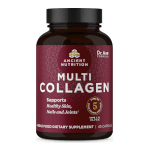 |
|
Multi Collagen Protein 45 Caps |
| $ |
| More Info |
| Ancient Nutrition |
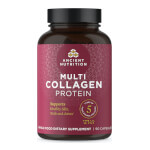 |
|
Multi Collagen Protein 90 Capsules |
| $ |
| More Info |

